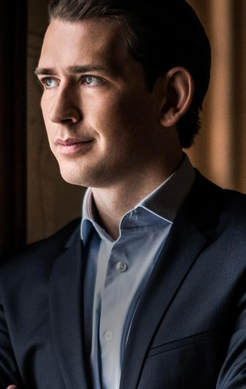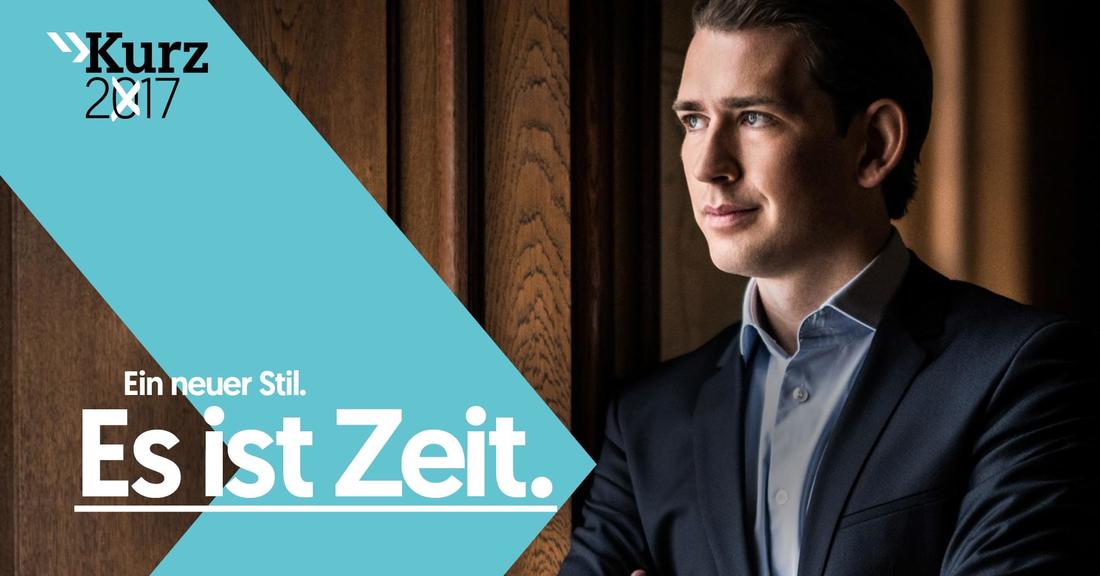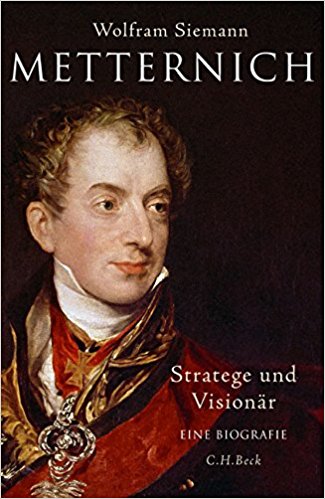Austria’s 2017 general election has come and gone, following Germany’s a month ago. The key issue in both elections was the 2015-2016 Migrant Crisis, disgruntlement over which appears to have energized large numbers and shifted the political discourse to the right; turnout was high. In Austria’s case, parties of the right will have over two-thirds of the seats in the new legislature, and that is with proportional representation.
The age of the new Austrian Chancellor has been the main coverage of the election I have seen. It is amazing, actually, that he is so young. The German press has called this character a ‘Young Metternich’ ever since he became Foreign Minister, at age 27, a few years ago. He is now 31.
|
|
Sebastian Kurz (b. 1986), is Austria’s Minister of Foreign Affairs [Dec. 2013 to Present], and Head of the Austrian People’s Party (OVP) from mid 2017. His party will control 34% of seats in the legislature as the largest party, and Kurz will soon be Chancellor, the youngest head of government in the world.

Sebastian Kurz
|
The original Metternich (1773-1859) is characterized as a political genius who dominated Austrian politics from the 1810s to the 1840s, starting, as Kurz has, as Foreign Minister.
Metternich’s great achievement is the preservation of Austrian power. At that time, Austria was a true power, a major power, but could have disappeared after the Napoleonic disruption. Metternich gave the Austrian Empire another century of life, for better of worse. The Austria of that era was a multi-national, pan-central-European empire with a German ruling minority and a long-established royal family (the Hapsburgs). It era represented a Catholic, multi-ethnic, ‘multicultural’ alternative model to north-German Protestant ‘Prussianism’ based in Berlin.
(Having long since lost the struggle against Berlin, Austrian/Hapsburg power ended forever in 1918, after the loss of legitimacy caused by its poor performance in the war and an embarrassing-and-obvious dependence on Germany from summer 1914 onward (actually earlier). With Vienna discredited and totally unable to suppress ethnic secession movements, the pan-central-European ‘Austria’ fell apart and this new German-Austria, as we know it today, was born.)
The ‘Young Metternich’ appellation for Kurz doesn’t make much sense, to me. The Austria of today is, unlike its imperial predecessor namesake, a very small state (7.5 million citizens in a Europe of 750 million). Also critically for this comparison, modern Austria is, by tradition, not a player in international politics. It is not now and never has been a NATO member, and, for a Western country, was quite a late entrant into the EU (1995, about forty years late).
Kurz and Metternich might be compared in broader terms. Metternich is credited not just with preserving/restoring Austrian power after the Napoleonic crisis, but with being a/the central figure in doing the same for the whole of Europe’s quasi-aristocratic order which was seriously threatened, discredited, and injured during Napoleonic period. A lot of ‘centrists’ around today’s Europe dream of a figure to play this role of defending the European post-1945 order of social-democractic liberal democracy in a time it is (widely believed to be) “under threat.
Skeptics would say that Kurz is not such a figure, even discounting the small size and disengagement of Austria, as he led his party to a 7.5% popular vote gain using, many have said, a watered-down version of the rhetoric of the insurgent Austrian Freedom Party (FPO). The latter is a party of the populist-nationalist right, whose campaign was based on slogans like “Stop the Islamization of Austria.”

“A new style. It’s time.”
Who will be Kurz’s coalition partner?
He can form a ‘coalition of the Center’ with the Social Democrats (SPO), or he can rule in a right-wing coalition with the FPO. If the latter coalition governs, Austria will seem to have entered the ‘Viktor Orban’ Wing of European politics.




